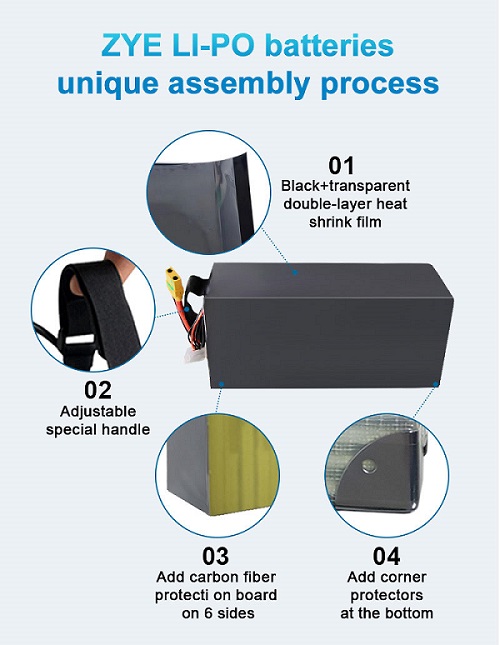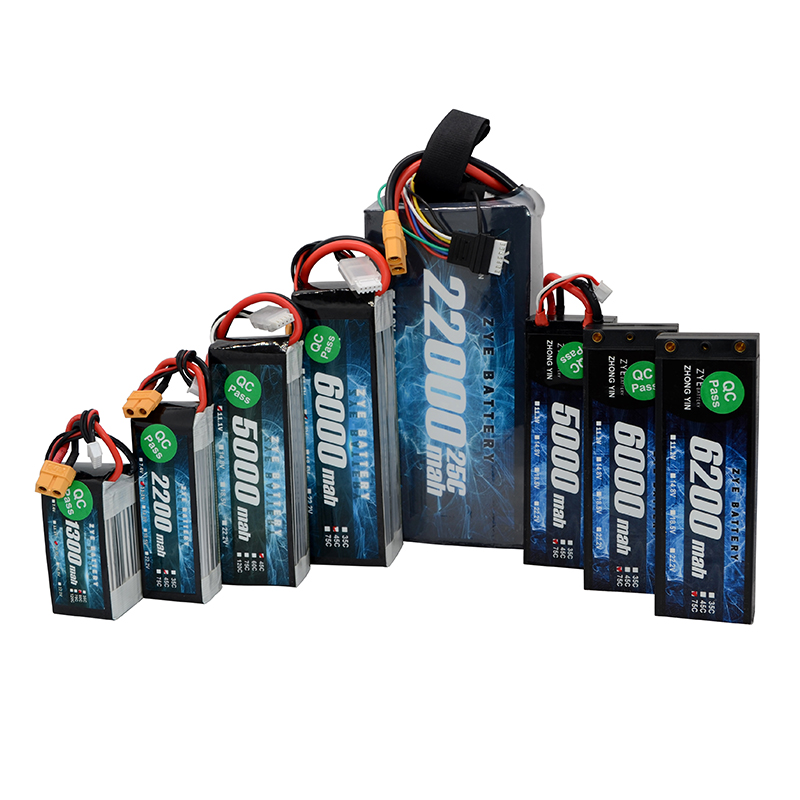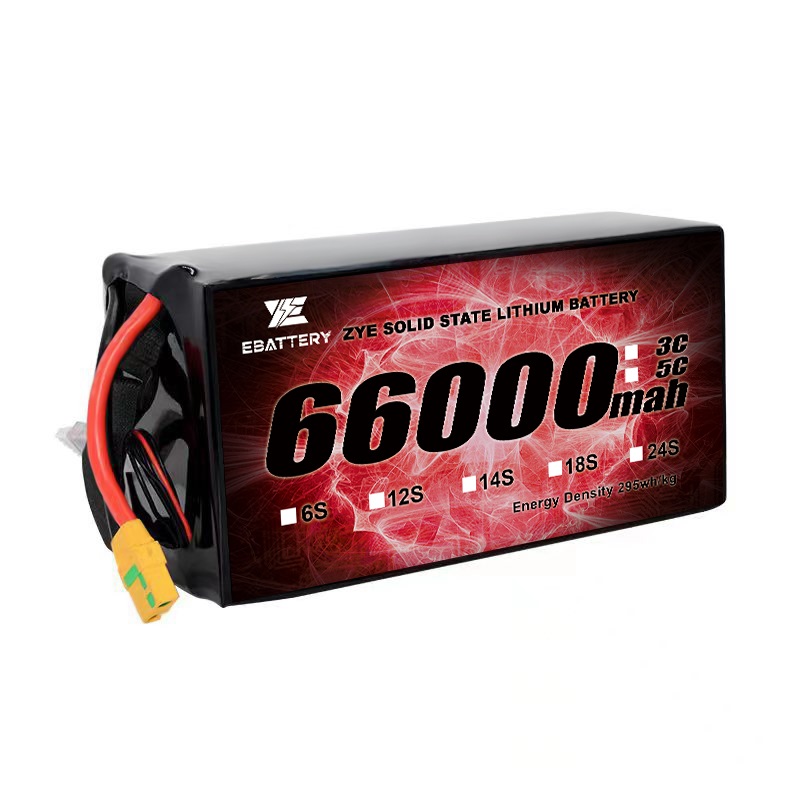How to Identify Quality drone battery pack manufacturers
2025-05-15
In the rapidly evolving world of drone technology, the importance of high-quality battery packs cannot be overstated. These power sources are the lifeblood of unmanned aerial vehicles (UAVs), determining their flight time, performance, and reliability. As the demand for drones continues to soar across various industries, from agriculture to cinematography, the need for dependable drone battery pack manufacturers has never been more critical.
Choosing the right manufacturer for your drone's power needs is a decision that can significantly impact your operations. This comprehensive guide will delve into the key factors that distinguish top-tier battery producers from the rest, helping you make an informed decision for your drone fleet.
What certifications should reliable drone battery manufacturers have?
When evaluating drone battery pack manufacturers, certifications serve as a crucial indicator of quality and reliability. These standardized accreditations ensure that the manufacturer adheres to stringent safety and performance guidelines, providing you with peace of mind and a guarantee of excellence.
ISO 9001 certification is a fundamental requirement for any reputable battery manufacturer. This internationally recognized standard ensures that the company has implemented a robust quality management system, focusing on continuous improvement and customer satisfaction. For drone battery producers, this certification translates to consistent product quality and reliability.
Another vital certification to look for is UN38.3. This standard is specific to lithium batteries and involves a series of rigorous tests to ensure safety during transportation. Given the potential hazards associated with lithium batteries, this certification is non-negotiable for any serious drone battery manufacturer.
The IEC 62133 certification is another crucial standard that applies specifically to secondary cells and batteries containing alkaline or other non-acid electrolytes. This certification covers safety requirements for portable sealed secondary cells and batteries made from them, which is particularly relevant for drone batteries.
Additionally, manufacturers operating in specific regions may need to comply with local certifications. For instance, in the United States, UL (Underwriters Laboratories) certification is highly regarded. In Europe, the CE marking indicates compliance with health, safety, and environmental protection standards.
It's worth noting that reputable manufacturers will readily provide information about their certifications. If a company is hesitant or unable to provide this information, it should be viewed as a red flag.
How to evaluate cell quality in drone battery packs?
The quality of individual cells within a battery pack is paramount to its overall performance and longevity. Top-tier drone battery pack manufacturers invest heavily in sourcing and testing high-quality cells for their products.
One key aspect to consider is the cell's chemistry. Lithium-polymer (LiPo) and lithium-ion (Li-ion) cells are the most common types used in drone batteries due to their high energy density and lightweight properties. However, not all cells are created equal, even within these categories.
Premium manufacturers often use cells from renowned producers like Panasonic, Samsung, or LG. These cells undergo rigorous quality control processes and offer superior performance and safety features. When evaluating a manufacturer, inquire about their cell sourcing practices and whether they use cells from reputable brands.
Another crucial factor is the consistency between cells within a pack. High-quality manufacturers employ advanced matching techniques to ensure that all cells in a pack have similar characteristics. This cell balancing is critical for maximizing the battery's overall performance and lifespan.
The discharge rate, or C-rating, is another important metric to consider. This rating indicates how quickly a battery can safely discharge its energy. For drones, which often require bursts of high power, a higher C-rating is generally desirable. However, it's important to note that some manufacturers may overstate their C-ratings. Look for manufacturers who provide detailed test results or third-party verifications of their stated C-ratings.
Cycle life is another critical factor in evaluating cell quality. This refers to the number of charge-discharge cycles a battery can undergo before its capacity significantly degrades. Premium manufacturers will often provide detailed information about their batteries' cycle life under various conditions.
Lastly, consider the manufacturer's quality control processes. Top-tier producers implement stringent testing at various stages of production, including individual cell testing, pack assembly quality checks, and final product performance verification. Don't hesitate to ask potential manufacturers about their quality control procedures and what specific tests their batteries undergo before shipping.

Do top manufacturers offer performance warranties?
The presence and extent of performance warranties can be a telling indicator of a manufacturer's confidence in their product quality. Top-tier drone battery pack manufacturers typically offer comprehensive warranties that go beyond simple defect coverage.
A standard warranty usually covers manufacturing defects for a specified period, often 6 to 12 months from the date of purchase. However, premium manufacturers often extend this coverage to include performance guarantees.
Performance warranties might include guarantees about the battery's capacity retention over time. For instance, a manufacturer might warrant that their battery will retain at least 80% of its original capacity after a certain number of cycles or within a specific timeframe under normal use conditions.
Some manufacturers also offer warranties related to the battery's discharge performance, ensuring that it will maintain its rated C-rating over a certain period. This type of warranty is particularly valuable for applications that require consistent high-power output.
It's important to read the fine print of any warranty offered. Look for details about what conditions might void the warranty, such as exposure to extreme temperatures or improper charging practices. Reputable manufacturers will provide clear guidelines on proper battery use and storage to help users maintain their warranties.
Additionally, consider the manufacturer's track record in honoring their warranties. Look for reviews or testimonials from other customers about their experiences with warranty claims. A company that stands behind its products and provides excellent after-sales support is likely to be a reliable choice for your drone battery needs.
Some top-tier manufacturers go a step further by offering extended warranty options or battery replacement programs. These programs can provide additional peace of mind and potentially lower the total cost of ownership over time.
Remember, while a comprehensive warranty is a positive sign, it should not be the sole factor in your decision. A warranty is only as good as the company backing it, so consider it in conjunction with other factors like certifications, cell quality, and overall reputation.
Conclusion
Identifying quality drone battery pack manufacturers requires a multifaceted approach. By examining certifications, evaluating cell quality, and scrutinizing warranty offerings, you can make an informed decision that ensures the best performance and longevity for your drone fleet.
At Ebattery, we pride ourselves on meeting and exceeding these quality standards. Our commitment to excellence in drone battery technology is reflected in our rigorous manufacturing processes, top-tier certifications, and comprehensive warranty programs. We invite you to experience the Ebattery difference for yourself.
For more information about our drone battery solutions or to discuss your specific needs, please don't hesitate to reach out to us at cathy@zyepower.com. Let's power your drone ambitions together!
References
1. Johnson, A. (2023). The Comprehensive Guide to Drone Battery Manufacturing Standards. Journal of Unmanned Systems, 15(2), 78-92.
2. Smith, B. & Lee, C. (2022). Quality Control Processes in Lithium Polymer Battery Production for UAVs. International Battery Association Conference Proceedings, 112-125.
3. Patel, R. (2023). Evaluating Cell Quality in Drone Battery Packs: A Comparative Study. Drone Technology Review, 7(3), 45-58.
4. Zhang, L. et al. (2022). Performance Warranties in the Drone Battery Industry: An Analysis of Current Practices. Journal of Consumer Electronics, 29(4), 301-315.
5. Williams, D. (2023). The Impact of Battery Quality on Drone Performance and Reliability. Unmanned Aerial Systems Quarterly, 18(1), 22-36.
























































